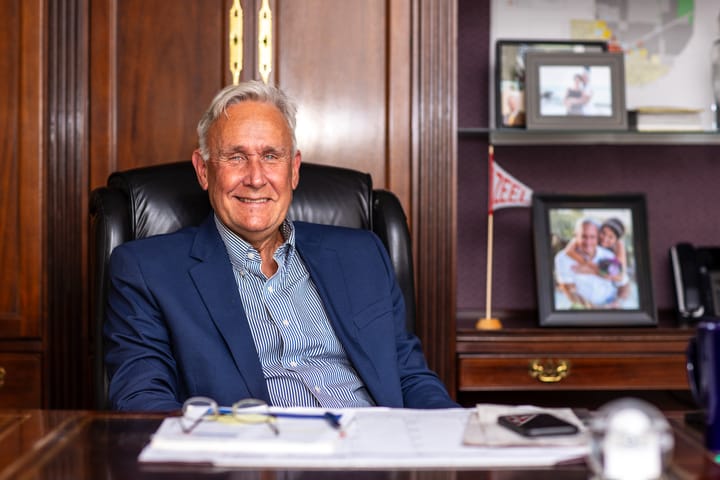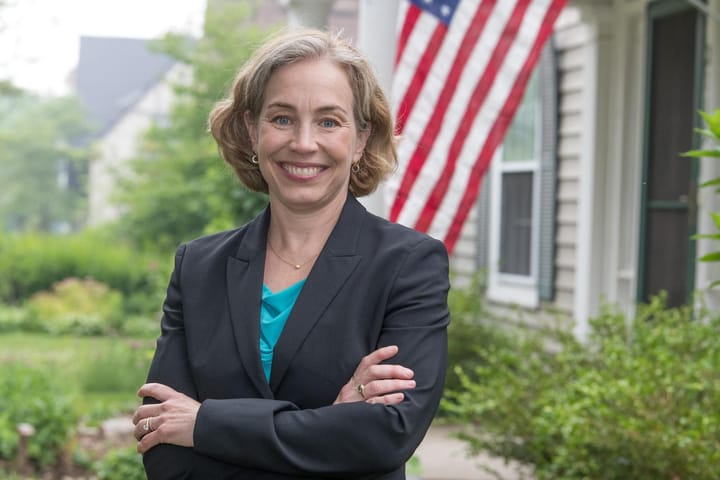Hope College filmmaker humanizes how immigration policies affect families
Immigration is a complicated issue that has far-reaching effects on families, the economy and a community that historically has welcomed immigrants.

HOLLAND — As President Donald J. Trump moves to crack down on immigration as a hallmark of his second term in office, immigration experts and Ottawa County residents have braced for a variety of possible outcomes.
They have found that immigration is a complicated issue that has far-reaching effects on families, the economy and a community that historically has welcomed immigrants.
This is the first in an occasional series focusing on how changing immigration policies affect local residents.
Finding a calling
When Gael Figueroa-Enriquez was growing up in Holland, he didn’t think he was any different than his peers at the local elementary school, but there was one important contrast — his mother was undocumented.
“Growing up in that area, I didn't necessarily notice anything different from the rest of the kids,” Figueroa-Enriquez said. “I grew up with a really diverse amount of students in the Holland area. That was the norm for me, but I never acknowledged the differences between me and my peers in the school/classroom setting.
“It wasn't until later in my life that I started reflecting on it, and I didn't really know the idea of what undocumented meant, and I didn't really understand that my mother fit into that category at the time,” he said.
The 20-year-old reflected on how he became aware of his family’s precarious situation.
“I recall, at some point in my education, I learned about what being an illegal immigrant was. My mom told me recently that I had come back home one day, and I asked what it meant, and [my parents] didn't necessarily specify that we fit into that, but I was very adamant on how that was bad and that wasn't good at the time,” Figueroa-Enriquez said.
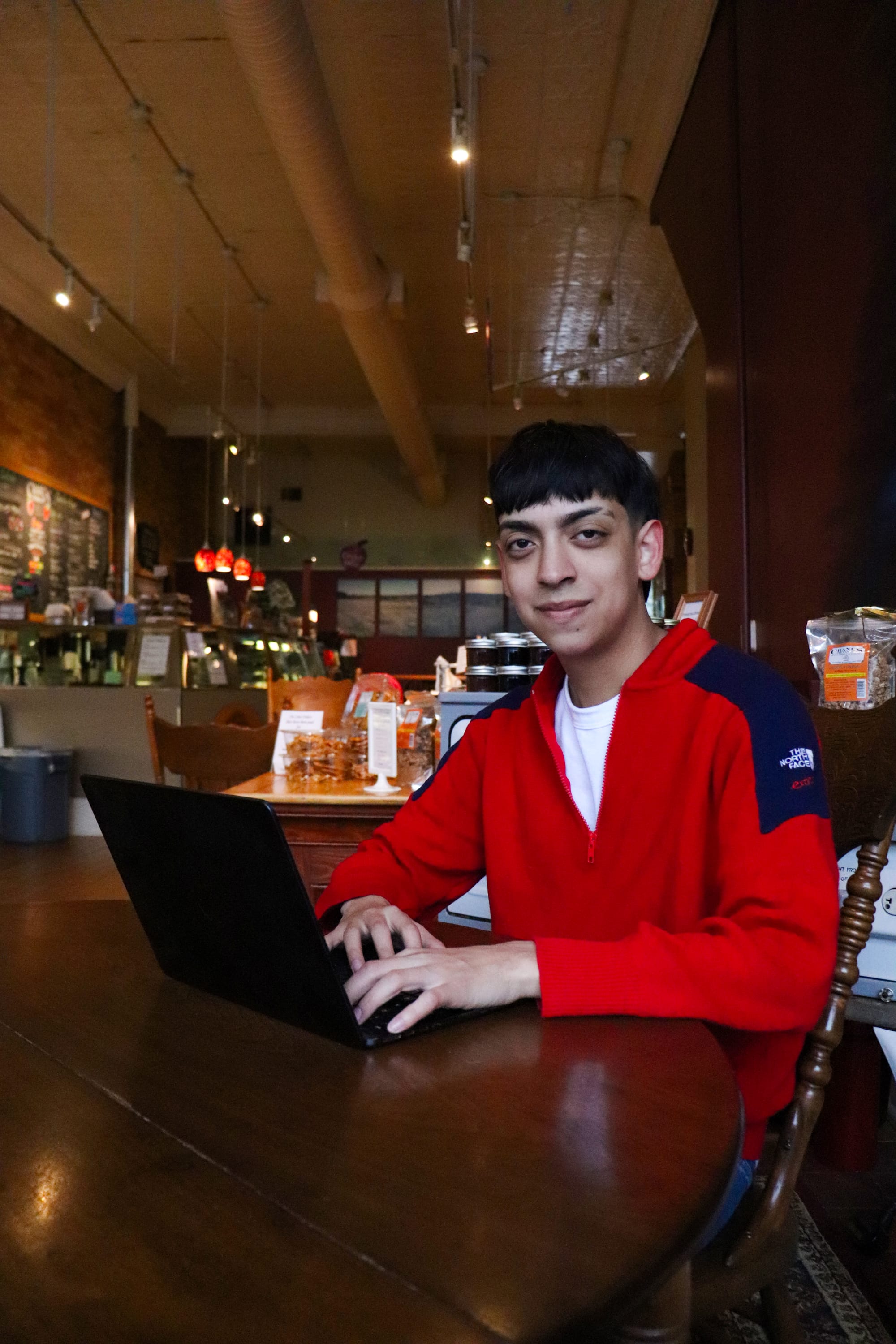
As he began to understand more about his family’s circumstances, it put context to many things.
“I kind of just discovered what my role was in that situation and how growing up here in this community was very different to other people and my peers,” he said. “It wasn't until I was in middle school that I actually had an idea of the situation that we were in. There were certain obstacles that we just had to overcome.”
That included rules such as being home before dark and avoiding police.
“Being pulled over by police, that was a very fearful experience growing up … having that fear against the authority for some reason that I couldn't necessarily explain at the time,” Figueroa-Enriquez said.
“I guess one day I just realized, yeah, there were certain obstacles and limitations that we had to face on a day-to-day basis,” he said.
Figueroa-Enriquez said the overall experience instilled in him a strong work ethic, which began with a primary focus on education.
He joined the Upward Bound Program, one of several federal programs that help students from disadvantaged backgrounds access higher education. The programs are funded by Title IV of the Higher Education Act of 1965. Upward Bound is part of the TRIO programs, which was given its name after its first three programs: Upward Bound, Talent Search, Student Support Services.
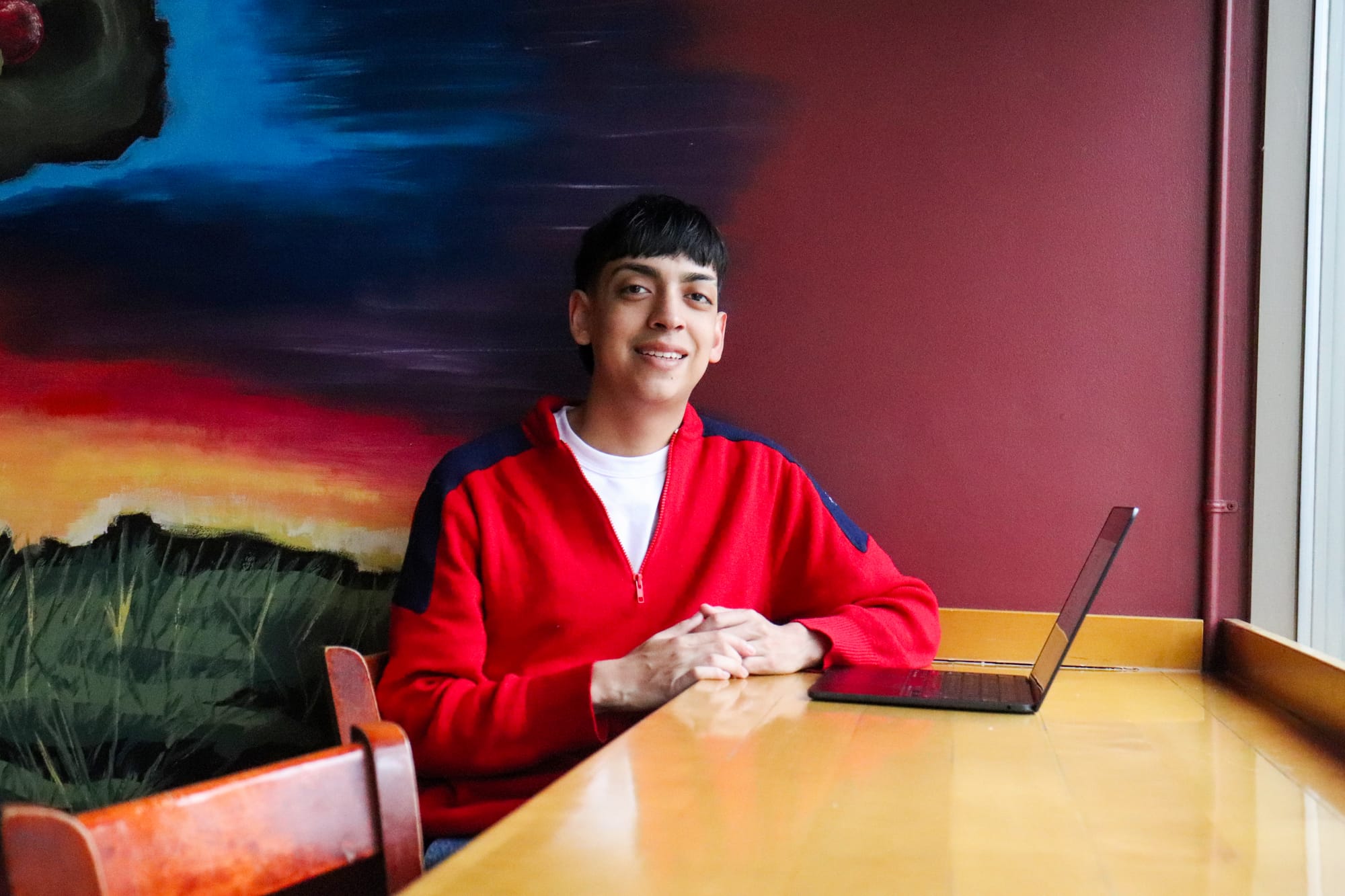
There, Figueroa-Enriquez found peers who had similar experiences and realized he wasn’t alone.
“A lot of my peers at the time were in the same situation as me — a lot of the parents also undocumented — and not necessarily having a path towards education being available to them,” Figueroa-Enriquez said. “We constantly struggle with the idea of what's next after high school.”
He said he struggled, at times, to envision what his future held and how he could achieve that success.
“I wasn't necessarily the best student. I was always told that I was capable of doing more. I was always told that I had potential, but oftentimes, I often reflected in my classes, and I looked around and I was the only student of color in a lot of these upper-level courses,” he said. “And I'm not saying that limited me, but it was definitely like, when you do a comparison, it's almost like you're living on a different planet.”
Figueroa-Enriquez said it can be challenging trying to relate his experiences to those who haven’t walked in his shoes.
“We all independently have different situations that we can't just imagine … even though we're all living in the same community, it’s different from one person to the next, and their lived experiences shaped the perspective on that community and the overall society as a whole,” he said.
He said, at times, he felt like he was learning about cultural values that didn’t necessarily fit with what he was living.
“I grew up … in an education system where they told me that the Native Americans and the pilgrims were best friends. It was just a certain kind of education that felt like I was aligning towards ideals and views that weren't necessarily accurate to my own experience and that of others that I knew had this history of limitations and obstacles and challenges,” he said.
“I wanted to know more and re-educate myself. So college became much more than just the next step for me, but an opportunity to feel like I was actually learning. And I've always said that college isn't about the academics, but always about the experiences and the people that you get to know through that.”
It was through the TRIO Upward Bound program that Figueroa-Enriquez was introduced to Cynthia Martinez, also a documentary filmmaker, who recruited the then-high school sophomore to participate in her film, “First Voice Generation.”
In the film Martinez, follows the stories of three Latinx high school students in Holland, including Fegueroa-Enriquez, during the COVID-19 pandemic, focusing on their struggles with adapting to remote learning while also navigating how they fit into a historically Dutch community as the children of Mexican immigrants.
It was through that experience that Figueroa-Enriquez found his passion.
“She covered some of those stories of the struggle and having to overcome these certain limitations. It was then that I discovered that narratives and voices have a story to be told,” Figueroa-Enriquez said.
Humanizing the immigration story
After high school, Figueroa-Enriquez befriended fellow student Danya Ortiz. Both are attending Hope College and have a lot in common.
“My mom was able to obtain her permanent legal residency two years ago, around the same time her mom did,” Figueroa-Enriquez said. “She's a year younger than me, but again, we knew each other. Our families were very close; we would go over to their house, and they would come over to ours.”
He started to pursue engineering, then worked in the geology department. It wasn't until a professor approached him and offered him a seat in his classroom, a course focused on media production, that he discovered his calling.
“I had no idea what I was getting myself into but I instantly fell in love with it,” Figueroa-Enriquez said. “After having spent three years being filmed, I was intrigued by the idea of being the one to film other stories. And by doing so, I fell in love with it. And so I was taking documentary theory this past semester, and I just wasn't sure what my project was going to be.”
He didn’t have long to wait.
On Sept. 4, Danya’s father, Jose, was detained by federal Immigration and Customs Enforcement officers, otherwise known as ICE.
The news hit home for Figueroa-Enriquez.
“To me, that was the realization of the biggest fear that oftentimes a lot of people that have undocumented families have. After you've established two to three decades of your life here, you sort of sometimes — not that you get comfortable with it — but you forget the overall fear that you initially had ... that one day immigration could come in and just change the whole dynamic and structure of your family,” he said.
“I reflected a lot on my own family and my own story, and I saw that this is a reality that a lot of families have been going through for such a long time. You hear about it in the news, but you don't see it on a personal level, and you definitely don't realize the implications on that unless you see it firsthand,” he said.
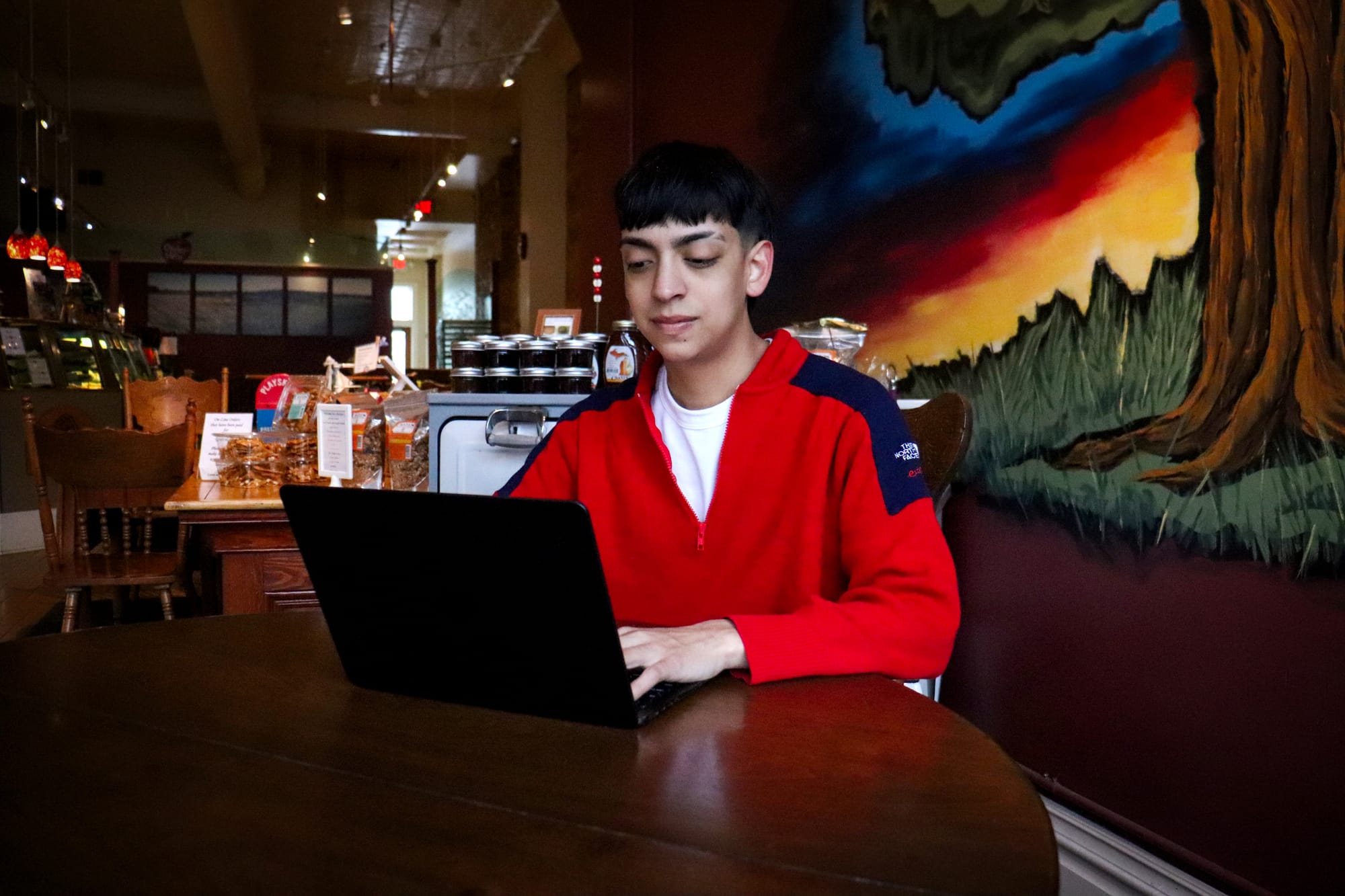
He said the rhetoric surrounding the issue of immigration in the 2024 election cycle, coupled with his own personal experiences prompted him to want to document the Ortiz family’s experience — but he wanted to do it with compassion.
“I definitely wanted to document it, but at the same time, there's sort of this line when you're a filmmaker, especially when you do documentary work, there's an ethical line you don't want to cross, especially when it's a real situation that's having a real impact on a real family,” Figueroa-Enriquez said.
It wasn’t until Trump was elected to a second term on Nov. 5 — and all the implied effects that would bring to immigration policies — that Figueroa-Enriquez realized that documenting the Ortiz story was not just important to him, but important to the country.
"After you've established two to three decades of your life here, you sort of sometimes — not that you get comfortable with it — but you forget the overall fear that you initially had ... that one day immigration could come in and just change the whole dynamic and structure of your family."
— Gael Figueroa-Enriquez
“It wasn't until Election Night that I saw the results, and I realized, ‘Okay, now more than ever, this sort of rhetoric that seems to divide us and spread misinformation around the reality for undocumented immigrants is actually the majority.’ Instead of just criminals that they want to label us as, I felt very keen on the importance of being able to document this story to show others within this community — not just the Holland community, but the Hope College community, the greater Michigan community, as well as the entire country — these are people, these are families, these are your neighbors, these are your co-workers. And the implications around just having one single label defined as ‘alien’ is very dehumanizing,” he said.
Since taking office on Jan. 20, Trump has signed eight executive orders specifically altering current U.S. immigration policy, from freezing the refugees admissions program to preventing future immigration at the southern border.
Trump also has attempted to revoke birthright citizenship — meaning that someone born within the U.S. or its the United States territories is automatically a U.S. citizen — which is currently protected by the 14th Amendment of the U.S. Constitution.
Read More: Trump’s attempt to end birthright citizenship would overturn more than a century of precedent
A federal judge has since blocked that order from taking effect saying it is unconstitutional and 22 states have sued the administration — between two separate lawsuits — over the order.
Figueroa-Enriquez said it’s more important than ever to keep humanizing those who immigrate to the U.S. and why.
“Now that we have a president coming in who has spread that false rhetoric, who allows for this misinformation to be used as a weapon against us, in a way to dehumanize the structures and legacies that a lot of us have built in this country, I saw now is more important than ever to be able to document the story to serve as an example of the reality around the situation,” he said.
Figueroa-Enriquez spent the next several weeks with Danya Ortiz, her sister and her mother. The end result was his first 30-minute documentary, “Hasta Tu Regreso (Until You Return).”
Figueroa-Enriquez praised Ortiz and her family for allowing him to document one of the most difficult experiences of their lives.
“It takes a lot of vulnerability,” he said. “You have to understand, with a lot of undocumented immigrants, when you get here, when you start your family, when you start working here, it's a very private life. You don't want exposure. You don't want eyes drawn to you. You don't want attention. You just want to be able to do what you need to do to sustain your family. So, for her and her family, to finally allow me to come in and reveal the reality around it, I praise and honor her family for that.”
He said although undocumented immigrants “break the rules,” most are just trying to better their lives and their family’s lives and do their part to help their adopted American communities.
“My hope is that the documentary addresses certain misconceptions about our situation. We're not leeches. We're not people taking benefits away from anyone. We pay our taxes. We're people of this community. We love this community, but at the same time, the only thing that makes it harder for us is to have that paperwork that says we're allowed to be here, but a huge portion of our economy, of our agriculture, of our healthcare system all benefit from us — and that's a huge proportion that the government acknowledges. They're not blindsided by it. They're very much aware of this, but they're still willing to spread that false rhetoric to say that we are the ones taking benefits away from people, and that's very harmful rhetoric, and it's very challenging for us.
Figueroa-Enriquez said it’s been devastating to see immigration policies politicized to divide Americans.
Support Our Work
Ottawa News Network is a nonprofit news service dedicated to providing the residents of Ottawa County with trustworthy, community-driven news. ONN treats journalism as a public good — something that enriches lives and empowers Ottawa County’s 300,000-plus residents to stay engaged, make informed decisions, and strengthen local democracy. Please consider giving today.
“I guess we're in a new era where the border crisis has been more prominent in our politics more than ever, and that's been used to kind of divide our nation even more than it already is. And then it's very concerning to see that this next administration will continue that harmful rhetoric,” he said. “I think it's very fearful and disappointing that a lot of people view this man as someone that they praise when a lot of policies that he's putting into place or wants to put in place are just harmful to not just one specific group, but our entire democracy as it stands, our Republic, as it stands as well.”
Figueroa-Enriquez, who is set to graduate in 2026, said he plans to expand the project to a full feature film.
As for Jose Ortiz, he flew back to Mexico on Dec. 17. He will have to wait one to three years for his case to be reconsidered.
— Sarah Leach is the executive editor of the Ottawa News Network. Contact her at sleach@ottawanewsnetwork.org. Follow her on Twitter @ONNLeach.


